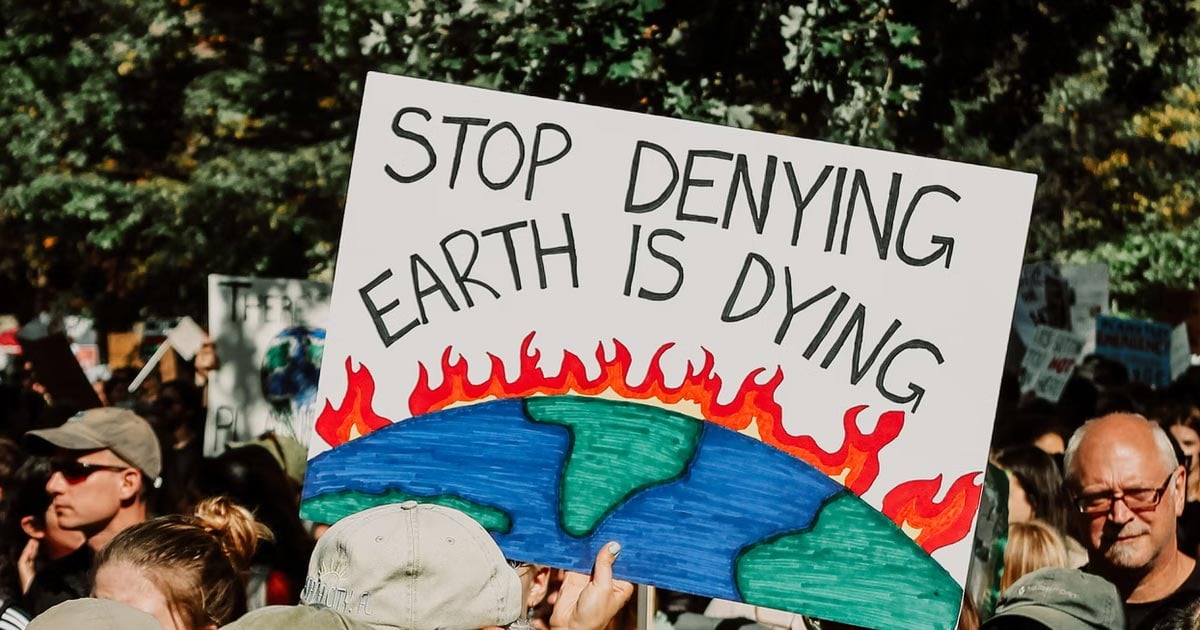Denial or Action – Nothing in Between
The recent outrageous speech of Stuark Kirk is one of the most irresponsible public statements we have heard in years.
Christiana is a Founding Partner of Global Optimism, co-presenter of climate podcast, Outrage + Optimism, and co-author of The Future We Choose: The Stubborn Optimist's Guide to the Climate Crisis.
Published
30 May 2022

The recent outrageous speech of Stuark Kirk, ostensibly the head of ‘responsible’ investing for HSBC Asset Management, was not only misinformed and misguided – his many fallacies have already been made clear – it is one of the most irresponsible public statements we have heard in years.
While some voices at HSBC sought to demurely distance themselves from the speech, the bank’s clients are left wondering where this puts the HSBC Global Equity Climate Change Fund of Funds, its membership in the Net Zero Asset Managers Initiative, along with all the climate ambition statements made by Noel Quinn, CEO of HSBC, including in communications to his 40 million customers. HSBC appeared to recognise the urgency of protecting asset value by committing to do its part to halve global greenhouse gas emissions by 2030 as part of the UNFCCC’s Race to Zero campaign. But Kirk has severely called into question the basic credibility of HSBC as a responsible financial institution. Given the deep damage done, it would be most prudent for HSBC to break from the pack of peers who are already decarbonizing portfolios and quickly move straight to the front line of climate finance leadership, led by a top management team that is fully aware of climate-related risks and the imperative to accelerate action.
Beyond the bank itself, Kirk has shone a light on a new fault line in our global efforts to address climate change. Building on the last IPCC reports, the recent WMO report makes the severity of climate risk pellucidly clear, from both a human survival as well as an economic stability and international security point of view. Last year alone, the climate crisis led to hundreds of billions of dollars in economic losses, devastated lives and livelihoods of 65 million people, and triggered the food and water security shocks now accelerating in 2022 as emissions continue to rise. One in three children are at ‘extremely high risk’ of the impacts of the climate crisis today. That unabated climate change can only lead to more human misery, accelerated migration, economic disasters and political conflicts is self-evident.
We have delayed our response to the climate reality so long that we are now standing on the edge of the abyss. There is no more space for any lukewarm positions. No more room for standing on the side admiring the problem. We have to peak global emissions by 2025 and cut 50% of them by 2030.
The moment has arrived for everyone to show their true colours, and there are actually only two possibilities. There is the possibility of still being in denial of the science and indifference to the human and economic consequences, as Kirk has done. Those who make that choice cannot stay in leadership positions. They will have to live with their conscience, and try to figure out how to explain themselves to their children and grandchildren. They should also start right away to explain themselves to the people on the Indian subcontinent, the African continent and in southern Europe who have been roasting in temperatures exceeding 40ºC over the past few weeks.
There is only one other possibility: understand the science and the existential threat we are facing, AND act on it now, not tomorrow, because tomorrow is too late. It is what we do now that will determine whether we are able to squeeze our way through the 2025 and 2030 closing doors. Understanding the science and not acting is no longer an option. The time for standing on the sidelines, minimally participating, and exporting the responsibility to others is over.







